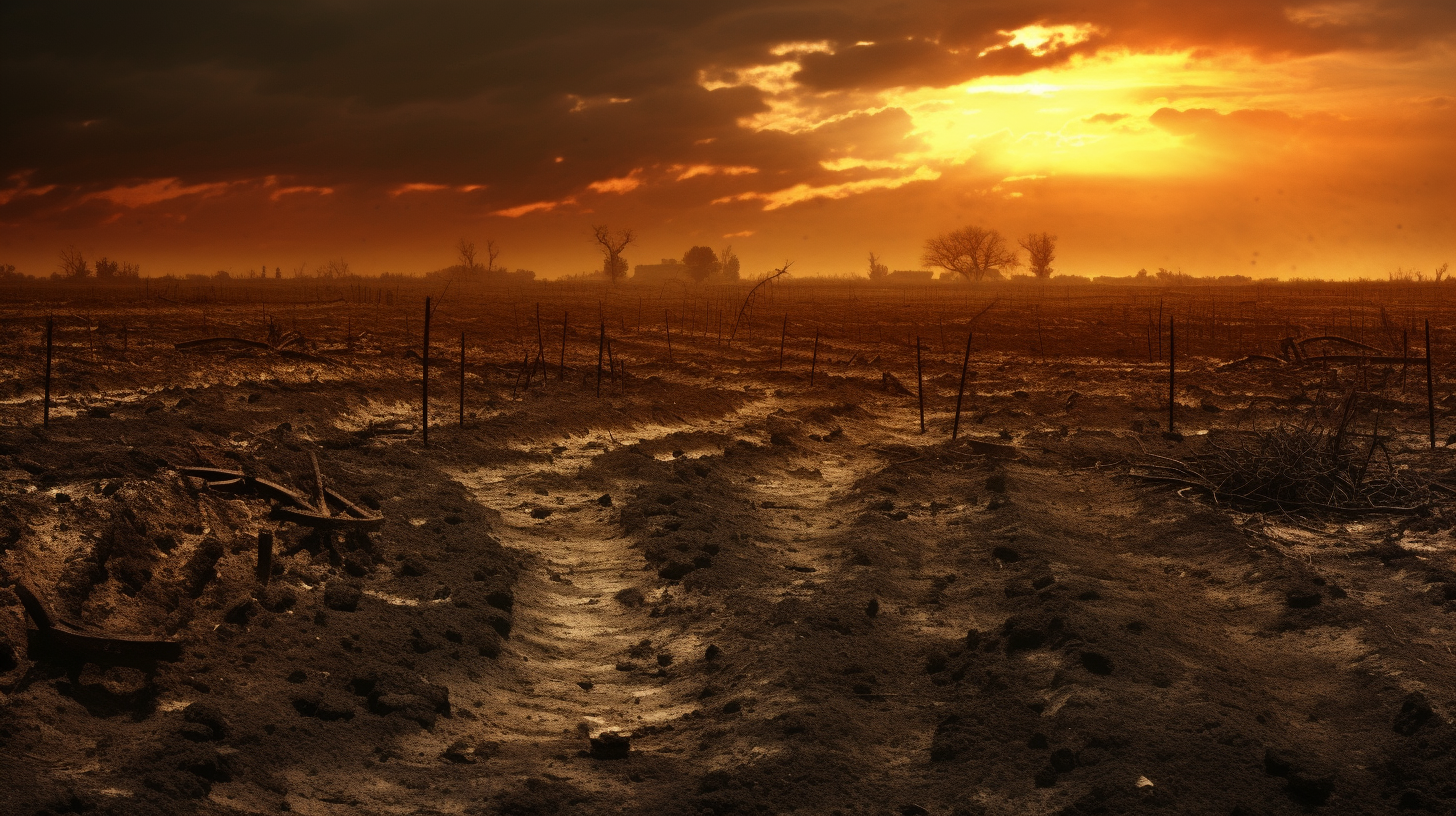Amidst a backdrop of unforgiving, intense sunlight and relentless heat waves, lies a vista that was once a tapestry of lush green farmlands and vibrant crops. These fields were the cradles of civilization, fostering societies upon their bountiful harvests. Today, one only glimpses the memories of abundance, as the vast expanse of barren earth sprawls endlessly – an ocean of desolation where hope can find no harbor. This is the quintessence of ‘Scorched Horizons’.
Where there was once a promise of perpetuity, we find nothing but parched earth and withered roots. The remnants of irrigation systems, which were arteries of life, hauntingly resemble the fossils of a creature that could not adapt fast enough to survive. Streams that sang with the symphony of flowing water run silent, now but dusty pathways for the lost soles of farmers’ boots.
Stories are etched into these fields; tales not of triumph, but of a gradual descent into sterility. The land’s fertility pulse, a heartbeat once thunderous, now no more than a faint tremor beneath cracked soil. The agricultural practices that fed generations have become mere echoes in this hollow expanse. Communities once teemed with shared laughter and nourishment at the harvest moon. Now, their structures crumble under the weight of the sun’s relentless gaze, infrastructures failing like the crops they were intended to foster.
‘A soil’s betrayal is a history’s lesson not learned.’ These words, found scrawled on an abandoned barn door, encapsulate the sentiment of this demise. It is a reflection on the brevity of human memory or perhaps the arrogance to assume that the warnings – spoken by scientists and evident in the patterns of our climate – were overstated.
Despite the stark scenery, one cannot help but seek signs of life. A lone tree stands defiantly amid the decay, its leaves blighted yet clinging stubbornly to brittle branches. This twisted silhouette against a blistering horizon is a portrait not of survival but of inevitable surrender to the changing climate.
Industrialized agriculture’s fall from grace spotlights the catastrophic effects of monoculture, dependence on chemical inputs, and the hubris of believing in the endlessness of resources. The invitation reads clear: witness the sterility wrought by environmental neglect, a monument to the disregard of nature’s thresholds.
Experts attempt to etch out survival methods, encouraging the resurrection of ancient agricultural wisdom alongside modern adaptation techniques. Yet, these efforts, akin to whispers in a tempest, seem as futile as the soft hum of insects that no longer grace these fields. We face not a problem to be solved, but a testament to the irreversible change that is the legacy of this once-fertile earth.
The harsh reality renders a society destabilized, wrestling with the specters of hunger and thirst. Visions of ration lines and food insecurity that were once distant anxieties manifest with startling voracity. The promise of technology, once heralded as a savior, languishes amidst resource scarcity and an unrecognizable climatic tapestry.
‘Scorched Horizons’ paints a chilling, yet eerily familiar picture, reminiscent of warnings long ignored. Still, one must ponder – is there not a morsel of wisdom to be gleaned amidst the ashes? Can this not stand as a junction for reflection rather than the conclusion of a chapter?
Ultimately, as night falls over these once vibrant plains, we are left to ponder the darkness. For in the absence of light, new perceptions grow – and in the vast emptiness of ‘Scorched Horizons’, new seeds of understanding might yet take root.
